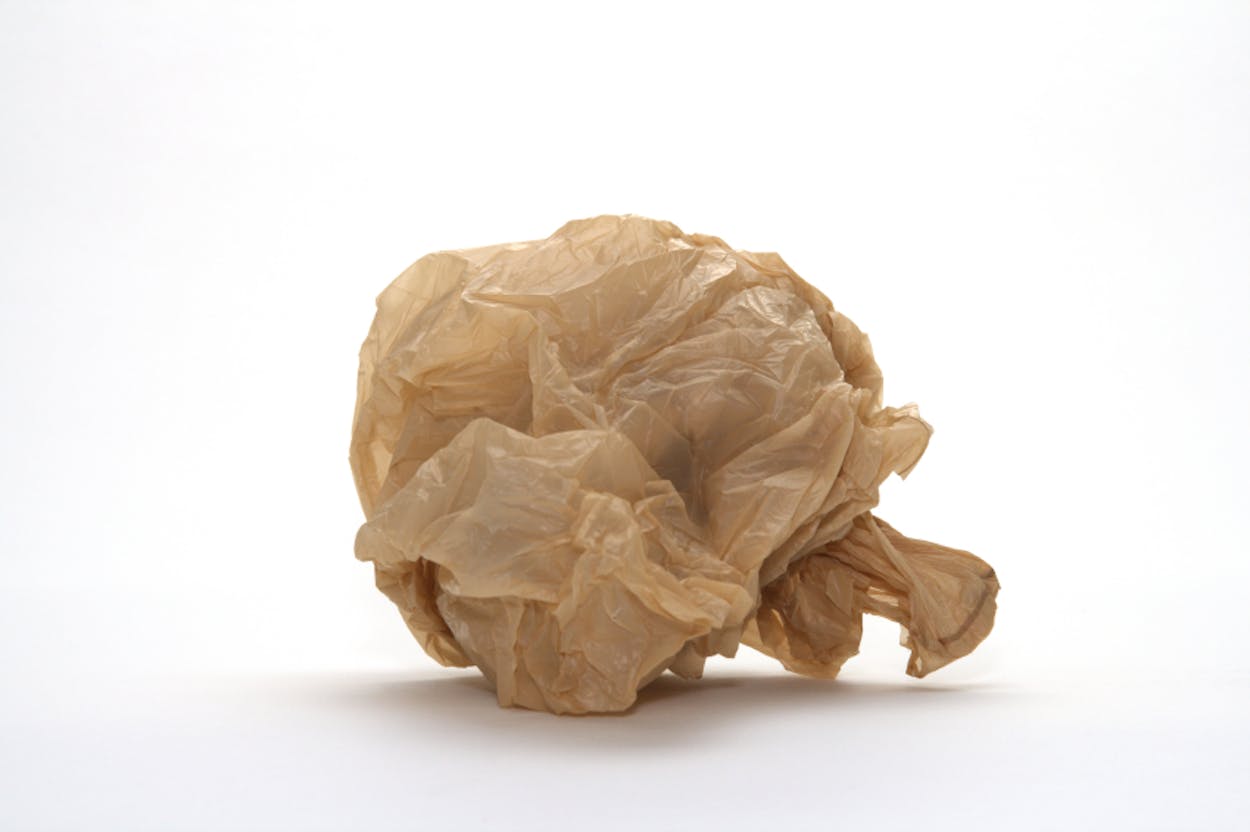Many grocery-shopping Austinites got a shock Friday, when they remembered that their foodstuffs would no longer be conveniently tucked into free plastic bags. On March 1, the city’s ban on single-use paper and plastic bags was officially implemented. The following days brought a mixed bag of reactions around the city and state. Voices on both sides of the issue make valid points—here are the highlights:
Pro: It’s good for Mother Earth.
Flimsy plastic sacks can take hundreds of years to decompose in landfills and are a major source of litter, according to the Bring It Austin website. The initiative was conceived as part of the city’s “Zero Waste by 2040” goal.
And for many Austin residents, the ban’s eco-friendliness makes the inconvenience worth it. “Everybody hates change. But as long as [the ban] is good for the environment, I’m OK with it,” Fredd Mann, a local shopper, told the Austin American-Statesman.
Con: Government just got bigger.
The “liberal Austin City Council” has been “desperately searching for something to ban,” argued FreedomWorks, a small-government advocate. Some worry that the new law will interfere with consumer rights and drive business out of Austin.
Freshman Rep. Drew Springer (R-Muenster) has already filed a bill—the “Shopping Bag Freedom Act”—to repeal the ban. If the government can ban bags, his statement reads, who’s to say they won’t regulate “how much salt one can put on their food.”
Pro: There are some exceptions . . .
Pharmacies and restaurants can still distribute paper bags; restaurants can even use plastic bags to prevent “moisture damage” from soups or sauces. Paper bags with handles and at least 40 percent recycled content are okay. So are plastic bags at least 4 millimeters thick with handles. For a full list of exceptions, visit Bring It Austin.
Con: Everyone might get E.coli.
The problem with reusable bags is you have to wash them. Otherwise, they could “harbor several kinds of bacteria, including E.coli,” KUT News reported. A San Francisco study found that cities with bans saw an uptick in ER admissions and “deaths related to intestinal infections.”
Even if people do keep up with their bag hygiene, it will cause more wasted water during a “severe drought,” Rep. Springer noted.
Pro: It’s keeping Austin weird. . .
In the rest of Texas’ eyes. In response to the Statesman‘s article, the Dallas Observer noted that the quoted Austinites “were being extremely Austin-ish.” The city “has undertaken a new effort to catapult their ‘weirdness’ to new and unimaginable heights,” FreedomWorks wrote.
Austin is the first major Texas city to implement such a ban. Dallas “is maybe a year or two” away from considering a similar measure, the Dallas Observer wrote.
The Texas Retailers Association has filed a lawsuit against Austin already, claiming that the city cannot ban bags without the state legislature’s okay, Courthouse News reported.
Con: What will Austinites use to line their wastebaskets?
So-called “single-use bags” are not necessarily single-use bags, argued RedState‘s Brad Jackson. Average HEB bags are used by many families to line wastebaskets in the bathroom, carry lunches to work, and store things around the house. But these bags, previously taken for granted, are gone. Austinites will have to find alternatives.






